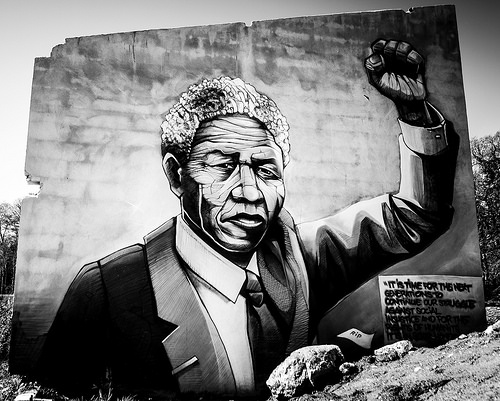 The account uptil now:
The account uptil now:
https://writespace4iw.wordpress.com/2014/05/04/nostalgia-my-family-a-historical-journey-through-the-seasons-part-1-by-afzal-moola-johannesburg-south-africa/
Part Two: Spring
The narrative here is neither chronological, nor is it meant to be a complete history of my family thus far – that would be highly presumptuous of me to attempt – so what you, dear reader, are reading (praise be to your perseverance!) are the disjointed thoughts and memories and anecdotal and other stories that every family shares.
I must state that the facts about my father’s internment and escape are all verifiable using a web-search engine, as are the facts about my parent’s involvement in the struggle for liberation in South Africa, and my father’s subsequent appointment by then President Nelson Mandela as South African Ambassador to Iran (1995 – 1999) and later by President Thabo Mbeki as South African High Commissioner to Pakistan (2000 – 2004) in the newly democratic country that countless South Africans sacrificed their lives to achieve.
My parents often spoke of the privilege that they felt to be alive and return to the country of their birth after spending virtually their entire lives as foot-soldiers in the African National Congress, the liberation movement that included in its ranks giants of South African history – Nelson ‘Madiba’ Mandela, Walter Sisulu, Govan Mbeki, Ahmed Kathrada, Dr. Moses Kotane, Dr. Yusuf Dadoo, Joe Slovo, Bram Fischer, Chris Hani, only to name a few, and with no disrespect meant to the many, many more that I have not named.
The ‘privilege’ my parents spoke about was that they were the ‘fortunate’ ones, the ones who lived to see the non-racial, non-sexist, democratic constitution being drafted, and a South Africa without the crime against humanity that was Apartheid.
So many comrades and friends and fellow compatriots did not live to cast their vote on that glorious April day in 1994, and to see Nelson Mandela being inaugurated as South Africa’s first freely elected black President, a President who represented the whole of South African society.
A Flash Back –
And so it was that I was born in 1972 in an India that had just been engaged in a war with Pakistan, which in turn led to the establishment of a new country – Bangladesh.
India at the time was the in midst of austere Nehruvian Socialism, and my parents who had spent the mid and late-1960′s in Tanzania, Zambia and Britain, were deployed by the African National Congress to India, where my father was the Chief-Representative of the ANC. My early childhood years were spent in India, and I recall the sweltering Delhi summers and the torrential monsoons that offered respite, albeit briefly, from the furnace of the Indian summer. When I was 6 years old, my father was deployed by the ANC to be its Chief-Representative in Cairo, Egypt, and to be the ANC Representative at the Afro-Asian Peoples’ Solidarity Organisation (AAPSO).This was 1978, and as a 6 year old, I am afraid I have very few fond memories of Cairo – we lived on a meagre stipend and though we lived in an apparently ‘better’ suburb of Cairo called Zamalek, an island on the Nile, the flat we occupied was on the ground-floor of a high-rise apartment block and it was damp, dark, and had the unfortunate distinction of being right next to the apartment block’s garbage-disposal area! This meant a steady stream of litter, literally being flung from the windows of our neighbours in the flats above us, and often landing with a crash of shattered glass right outside our tiny kitchen.
Cairo was also where I had to unlearn the Hindi I had learnt in Delhi and pick up Arabic, which I did as most 6 year olds do when required by circumstance to learn a new language.I faintly remember the Presidents’ Sadat-Carter meetings around the time of the Camp David Peace Accord signed between Israel and Egypt and my days were spent riding my bicycle through the dusty lanes of Zamalek. One memory that is particularly poignant, is that of my mother, with her head in her hands, sobbing as she pined for her two children at the opposite end of the African continent. I remember many days walking back from school and before stepping into our apartment block, seeing my mother through the window of what was my room, head in hands, crying. It is a memory that I carry with me still.
Another indelible memory is when we visited the WWII museum of the battle of al-Alamein, in al-Alamein. Walking past the graves of the fallen in the war against Nazism, we came across many South African names, and I remember vividly how my father explained to me what Fascism and Nazism meant, and how important it was at the time for the world to fight it.
As we walked through the tombstones of the WWII soldiers from all parts of the world, my father explained to me how Apartheid in South Africa was a scourge (though not in those words!) like Fascism and Nazism, and how just as the world had joined forces to fight Hitler and Mussolini, we too had to fight against Apartheid in South Africa, and that is why I was not at ‘home’ with my brother and sister.
‘Home’. That was something for a 9 or 10 year old to hear, because I had grown up always being told about ‘home’ being South Africa, which was as distant to me as the stars above the Pyramids. I was aware from as young as I can remember my parents’ sometimes angry insistence that home was not where we happened to be, at a particular time, whether in Delhi or in Cairo, but in distant South Africa. I however, could not understand why ‘home’ was not where I was. In Delhi I spoke Hindi like a local, and had friends and felt that ‘home’ was our little flat on the 1st floor of a block of flats in Greater Kailash. But then came the move to Cairo, and in no time at all I completely forgot my Hindi, and learnt Arabic like a local, and had friends and felt that ‘home’ was our dinghy flat in Zamalek.
And then in 1982, my father was re-deployed from Cairo back to Delhi, and suddenly there I was, 10 years old, meeting my old friends and not knowing a word of Hindi! So the idea of ‘belonging’, of ‘home’, of being rooted in a place and time was alien to me from a very young age. I remember dreading when the next ‘move’ would be, given that my parents were political exiles and often having to pack up our few belongings and travelling at very short notice.
I do not want it to sound like it was particularly unpleasant in any way, because there also was the thrill a child has of the packing and the plane rides, and the new places that were so, so new to me.
Cairo and Delhi probably had only the following things in common: the heat, the population, and the fact that both Egypt under Gamal Abdul Nasser and India under Jawaharlal Nehru were two of the four countries (the others being Sukarno’s Indonesia and Marshall Tito’s Yugoslavia) that founded the Non-Aligned Movement (NAM) during the Cold War.
……to be continued










 The account uptil now:
The account uptil now: 

